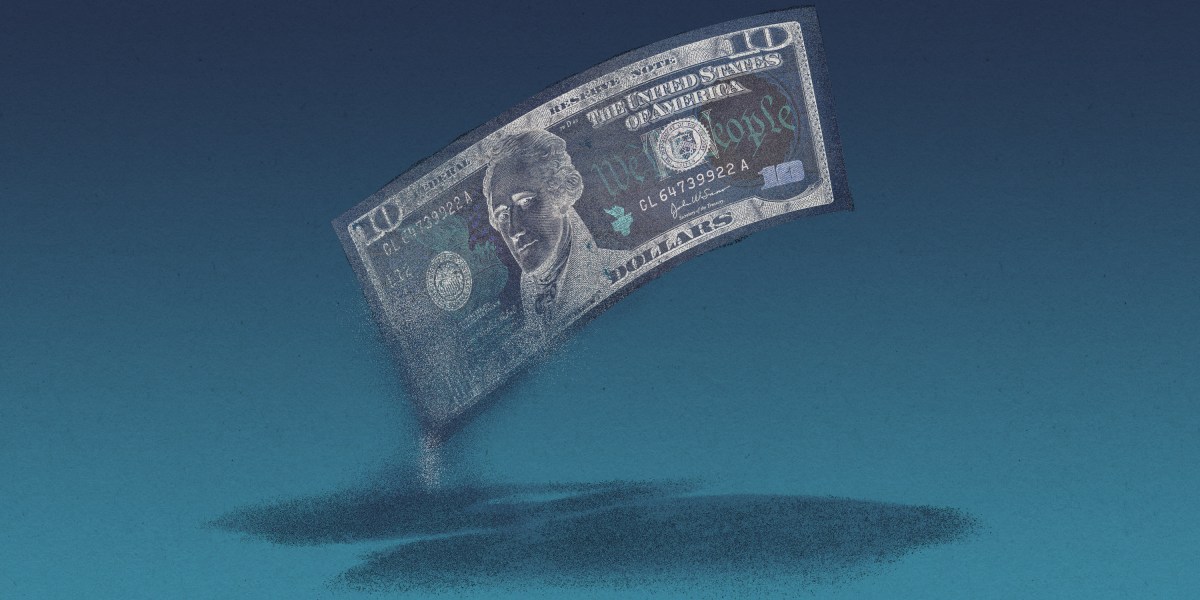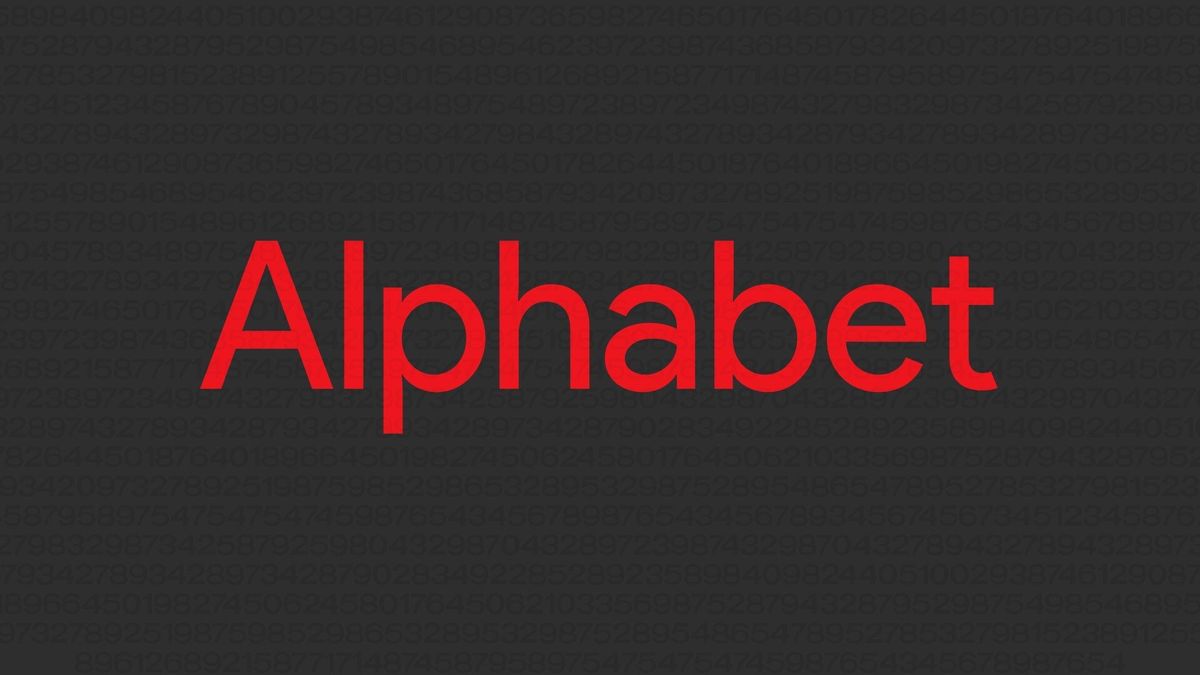In a single respect, the actors and writers of Hollywood uniting on the picket traces in a historic, industry-shaking strike is a story as previous as time: considered one of employees preventing bosses for higher pay. But the rationale this battle is shaping as much as be so uniquely intractable and momentous — as you may need gathered from all of the headlines about synthetic intelligence and streaming economics — may be very a lot of our second.
Nevertheless it’s not, in the end, know-how that’s on the root of the issue. It’s that the studio executives each new and previous have embraced the highly effective — and in the end disastrous — magical considering pumped out by Silicon Valley for the final 10 years.
Studio heads are touting the disruptive properties of digital streaming, the transformative energy of AI, a courageous, unpredictable new world for leisure writ massive — and the way writers and actors should adapt to this new future. However simply because it did when it was issuing from the tech sector in the course of the 2010s, this speak too usually quantities to a smokescreen that lets executives and buyers line their pockets and dangers leaving employees holding the bag.
“These firms blew up a profitable enterprise mannequin that the general public loved, that was immensely worthwhile, and so they changed it with a mishmash that we’ve got now,” Adam Conover, the star of “Adam Ruins Every little thing” and a negotiating committee member of the Writers Guild of America, tells me. “And now, they’re refusing to replace the contract to mirror these adjustments.”
We’ve heard rather a lot in regards to the ways in which studios wish to reserve the suitable to make use of AI — to create endlessly usable digital replicas of actors, to generate scripts that writers will probably be paid decrease charges to repair up. We’ve additionally heard in regards to the new financial image ushered in by streaming, about an {industry} within the throes of change, and the need of belt-tightening because of this.
We’ve heard Disney Chief Government Bob Iger saying the demand by the Display screen Actors Guild for truthful fee within the new digital panorama “isn’t life like,” and heard how Netflix noticed declining person sign-ups and inventory costs final yr. But Iger reportedly makes $27 million a yr, whereas Netflix simply raked in $1.5 billion in web revenue within the final quarter.
So what’s actually occurring? And the way did we get right here?
First, we have to perceive why the 2010s might nicely come to be remembered as the good decade of magical considering for Silicon Valley. Drunk on a really transformational first decade of the twenty first century — one which noticed Google, Amazon, the iPhone and social media storm the world stage — flush tech buyers turned their sights towards the following era of startups, desperate to see them do the identical.
The method for in search of out that subsequent multibillion-dollar “unicorn,” in hindsight, was fairly easy: The following wave of startups needed to promise that it might disrupt a stale {industry} with a more moderen, high-tech, app-driven different, promise the potential for huge scale and promise that it may accomplish that quick. So we noticed the rise of Uber and Lyft, every of which vowed to revolutionize transit, and we obtained the likes of WeWork, which got down to usher in the way forward for co-working, and Theranos, which might do the identical for at-home blood testing.
We all know the way it ended. Uber and Lyft have by no means been sustainably worthwhile, WeWork collapsed dramatically when it grew to become clear that it was merely a wildly over-leveraged actual property firm, and Theranos’ futuristic medical know-how was outright fraudulent.
Not like most of the twenty first century’s first-wave tech firms and merchandise, which discovered each markets and roads to profitability, these have been pipe desires, propped up by a hearth hose of funding money, big-talking founders and the very actual — and on the time, fairly comprehensible! — sense that Silicon Valley was the place that decided how the long run was made.
Because the 2010s started, Netflix sat someplace between the previous guard and the brand new. It launched on-line streaming in 2007, and had an actual product with actual demand, in addition to a longtime enterprise in its DVD-by-mail rental service. But its ambitions have been hypercharged by a newfangled sense that it may disrupt the old-fashioned Hollywood {industry} and scale endlessly — there was no motive everybody on the planet with entry to a display couldn’t subscribe.
Massive-name buyers sank a whole bunch of hundreds of thousands into Netflix’s new imaginative and prescient. Because it started producing unique content material in 2013, it utilized a distinctly next-wave Silicon Valley ethos. It could make huge upfront investments, bankrolling large productions such because the David Fincher-helmed, Kevin Spacey-starring “Home of Playing cards,” elbowing its means into the status TV pack, promising not solely to compete but additionally to do it higher: It could supply all of the episodes directly, on demand, and viewers may eat them every time and nonetheless they needed. Cable would develop into out of date. The long run was chopping the twine.
As with Uber and Lyft, whose bottomless chests of enterprise capital allowed them to overcome new markets as soon as dominated by stodgy previous opponents — of their case, the taxi cartels and livery cab firms — value was no object.
Proper out the gate, episodes for unique Netflix reveals corresponding to “Home of Playing cards” and “Orange Is the New Black” price $4 million a pop. (So did episodes of reveals that few keep in mind at the moment, corresponding to “Hemlock Grove.”) The spending was profligate — it quickly rose to charges of $15 billion a yr on new content material — however because it did for the magical valley startups, the technique “labored.”
“What occurs is Netflix turns into the Wall Road darling, and all these different firms,” like Amazon, Disney, Apple, HBO, Paramount and NBC, “race to undertake Netflix’s enterprise mannequin,” Conover says.
Herein lies the difficulty. Amid this growth, which for a couple of years ushered in a gold rush for writers and expertise, Netflix et al. adopted one other key ingredient of Silicon Valley’s method: secrecy. Information about reveals’ efficiency and viewer habits have been stored proprietary; we knew solely what the streamers needed us to know. That went for purchasers, performers, writers and for buyers. Streaming is an inscrutable black field, about which so many tales may be instructed.
It’s a sticking level within the negotiations — actors and writers on streaming sequence need a greater solution to calculate the worth of their work, on condition that the residuals they earn are a lot decrease than for community or cable reveals. The studios have resisted. “The rationale no person actually needs to open the books on it’s because if Wall Road obtained a glance,” one Hollywood insider instructed New York Journal, “they’d have a collective stroke.”
What we’re seeing now’s the fantastical considering that Netflix and its followers may proceed infinite growth working up in opposition to the physics of the actual world — there at the moment are 238 million Netflix subscribers, however these numbers dropped for the primary time final yr, and the corporate needed to claw them again by nibbling on the corners, chopping off password sharing and launching new, cheaper tiers that run advertisements.
The growth occasions are over. Executives understand it. Wall Road is aware of it. And the story that we’re in a revolutionary second of technological transformation will run out of gasoline quickly. So the bosses are utilizing that second to do what Silicon Valley wound up doing when its different massive swings didn’t pan out: squeeze labor.
Simply as Uber and Lyft, which promised drivers wealthy rewards and versatile fares, began lowering charges and making it more durable to earn these rewards, Netflix and the streaming cohort lower in its mould at the moment are making an attempt to sq. their guarantees of world conquest by slashing employee pay underneath the fog of magical considering.
It’s been famous, and appropriately so, that leisure {industry} labor disputes usually erupt when there’s a change in know-how — from theaters screening projected movies to the cathode ray tube of the house tv, say, or the rise of YouTube and different on-line content material within the 2000s — and that occurs for a motive. Traditionally, executives and administration use a disorienting new know-how to attempt to justify reducing wages of their employees, and so they have achieved so because the days of the Industrial Revolution.
“The previous CEOs knew they needed to work with the unions, discount with us,” Conover says. “The brand new ones don’t. So a part of the purpose of the strike is us as labor exhibiting the tech CEOs that no, you really do must deal pretty with the unions.”
Conover notes that it’s jarring to see the streamers plead poverty as an excuse to not negotiate with expertise in good religion, on condition that present budgets and earnings have each gone up.
“Netflix lied to the general public and Wall Road,” he says, telling them, “‘you may watch each present ever made in perpetuity, with no advertisements, for $15.99 a month endlessly.’ That’s like Film Cross” (the much-hyped app that allowed customers to see limitless films for a month-to-month payment, earlier than shortly going bankrupt). “That’s ludicrous.”
Ludicrous if you wish to pay the individuals who really create these reveals for you, anyway.
What Netflix and the streamers try to do now’s seal in a brand new commonplace underneath which writers and actors are handled in a lot the way in which that Uber and the gig app firms deal with their unbiased contractor drivers.
“Uber is an ideal instance,” Conover says. “Its drivers want to produce their very own automobiles, their very own gasoline, their very own insurance coverage and so forth.” The drivers are on their very own, with few to no advantages or protections, and are anticipated to maximise earnings for the corporate. “And Netflix is making an attempt to do the identical factor.”
Not like Uber, Netflix actually is kind of worthwhile. However with a purpose to maintain the legendary ranges of development it has promised buyers, it’s turning to related ways — chopping employees’ hours, making work extra precarious and unpredictable and lowering pay. It’s a far cry from the smooth, automated futures promised by the studio executives.
As with the most important firms of Silicon Valley’s magical considering period, it’s usually arduous to parse whether or not those touting the game-changing applied sciences themselves even consider in these visions — do studio execs actually suppose customers wish to watch a parade of digital replicas of their favourite actors parroting traces from an AI-generated script? Or are they merely conscious that the mere risk of such a future offers them leverage and energy over the employees of at the moment?
Ultimately, the reply is immaterial. Silicon Valley’s invasion of Hollywood introduced with it science fictional notions of development for the {industry}, a penchant for secrecy and unaccountability and the expectation that it may get away with treating employees like robots or invisible code. We’re seeing what occurs when these notions meet, for one of many first occasions, with a strong, organized resistance.
Personally, I’m hoping this one will get a Hollywood ending — and never the ending so many Silicon Valley startups obtained over the past 10 years.
Watch L.A. Instances Immediately at 7 p.m. on Spectrum Information 1 on Channel 1 or dwell stream on the Spectrum Information App. Palos Verdes Peninsula and Orange County viewers can watch on Cox Programs on channel 99.



.jpg)


















